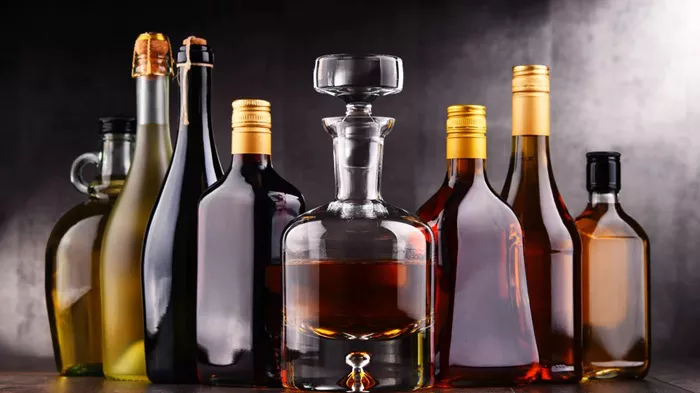In the realm of alcoholic beverages, vodka stands as a popular choice for many, revered for its versatility in cocktails and perceived purity. However, amidst the enjoyment of its taste and the camaraderie it often fosters, lurks the looming concern: Does vodka give you a hangover? This question has sparked numerous debates among drinkers and researchers alike. In this article, we delve into the intricate relationship between vodka consumption and hangovers, exploring the scientific evidence, common misconceptions, and strategies for responsible consumption.
Understanding Hangovers: The Basics
Before delving into the specifics of vodka-induced hangovers, it is crucial to comprehend the fundamental mechanisms underlying these unpleasant experiences. A hangover typically manifests as a constellation of symptoms, including headache, nausea, fatigue, sensitivity to light and sound, and cognitive impairment. These symptoms typically arise after the consumption of alcohol and can last for several hours to an entire day.
Alcohol Metabolism and Hangovers
The onset of a hangover is closely linked to how the body metabolizes alcohol. When alcohol is ingested, it undergoes a complex metabolic process primarily in the liver. The enzyme alcohol dehydrogenase breaks down ethanol into acetaldehyde, a highly toxic compound responsible for many hangover symptoms. Acetaldehyde is further metabolized into acetate by another enzyme, aldehyde dehydrogenase, which is less toxic and can be readily excreted from the body.
The Role of Congeners in Hangovers
Congeners are chemical compounds produced during the fermentation and distillation process of alcohol. They contribute to the flavor, aroma, and color of alcoholic beverages. In the case of vodka, which is typically distilled multiple times to achieve a high level of purity, congeners are present in minimal amounts compared to other alcoholic beverages like whiskey, brandy, or red wine.
Debunking the Myth: Does Vodka Give You a Hangover?
Contrary to popular belief, vodka is often touted as one of the least likely spirits to cause hangovers. This assertion stems from its relatively low congener content and high level of distillation, which theoretically minimizes the presence of impurities that can exacerbate hangover symptoms. However, it is essential to recognize that individual factors such as genetics, hydration levels, and overall alcohol tolerance play significant roles in determining susceptibility to hangovers.
See Also: What is Most Vodka Made From?
The Importance of Moderation
While vodka may have a reputation for being less likely to cause hangovers, moderation remains key to mitigating adverse effects. Excessive consumption of any alcoholic beverage, including vodka, can overwhelm the body’s metabolic processes, leading to a more severe hangover. To minimize the risk of experiencing hangover symptoms, it is advisable to adhere to recommended drinking guidelines and alternate alcoholic beverages with water to stay hydrated.
Hydration: A Crucial Factor
Hydration plays a critical role in both preventing and alleviating hangover symptoms. Alcohol is a diuretic, meaning it increases urine production and can result in dehydration if not adequately countered. Consuming water alongside alcoholic beverages, particularly vodka, can help maintain hydration levels and lessen the severity of hangovers. Additionally, rehydrating before bed and upon waking can further mitigate the effects of alcohol on the body.
Nutritional Considerations
In addition to staying hydrated, paying attention to nutritional intake before and during alcohol consumption can influence hangover severity. Consuming a balanced meal rich in carbohydrates, protein, and healthy fats before drinking can slow the absorption of alcohol into the bloodstream, potentially reducing the likelihood of a hangover. Furthermore, replenishing electrolytes lost during alcohol consumption through sports drinks or electrolyte-rich foods can aid in recovery.
Mixers and Additives: Impact on Hangovers
The choice of mixers and additives used in vodka cocktails can also influence the likelihood and severity of hangovers. Sugary mixers and artificially flavored additives may exacerbate hangover symptoms due to their potential to increase blood sugar levels and contribute to dehydration. Opting for natural mixers such as fresh fruit juices or soda water can mitigate these effects and promote a more enjoyable drinking experience.
Individual Variability in Hangover Susceptibility
It is essential to recognize that the experience of a hangover is highly individualized and can vary significantly from person to person. Factors such as age, gender, weight, metabolism, and overall health can influence how the body responds to alcohol consumption. While some individuals may be more resilient to hangovers and able to tolerate higher alcohol intake, others may experience severe symptoms after minimal consumption.
Preventive Measures and Remedies
While there is no foolproof method for completely avoiding hangovers, several preventive measures and remedies may help alleviate symptoms and promote faster recovery. Consuming a hearty meal before drinking, pacing alcohol consumption, staying hydrated, and getting adequate rest can all contribute to minimizing hangover severity. Additionally, over-the-counter pain relievers, electrolyte supplements, and rehydration solutions may provide temporary relief from hangover symptoms.
Conclusion
In conclusion, the question “Does vodka give you a hangover?” is not a straightforward one. While vodka, with its low congener content and high level of distillation, may be less likely to cause hangovers compared to other alcoholic beverages, individual factors such as genetics, hydration, and overall alcohol tolerance play significant roles in determining susceptibility to hangovers. Responsible consumption, moderation, and attention to hydration and nutrition remain paramount in mitigating the adverse effects of alcohol and promoting overall well-being. By understanding the factors that contribute to hangovers and adopting healthy drinking habits, individuals can enjoy the pleasures of vodka in a more mindful and sustainable manner.


